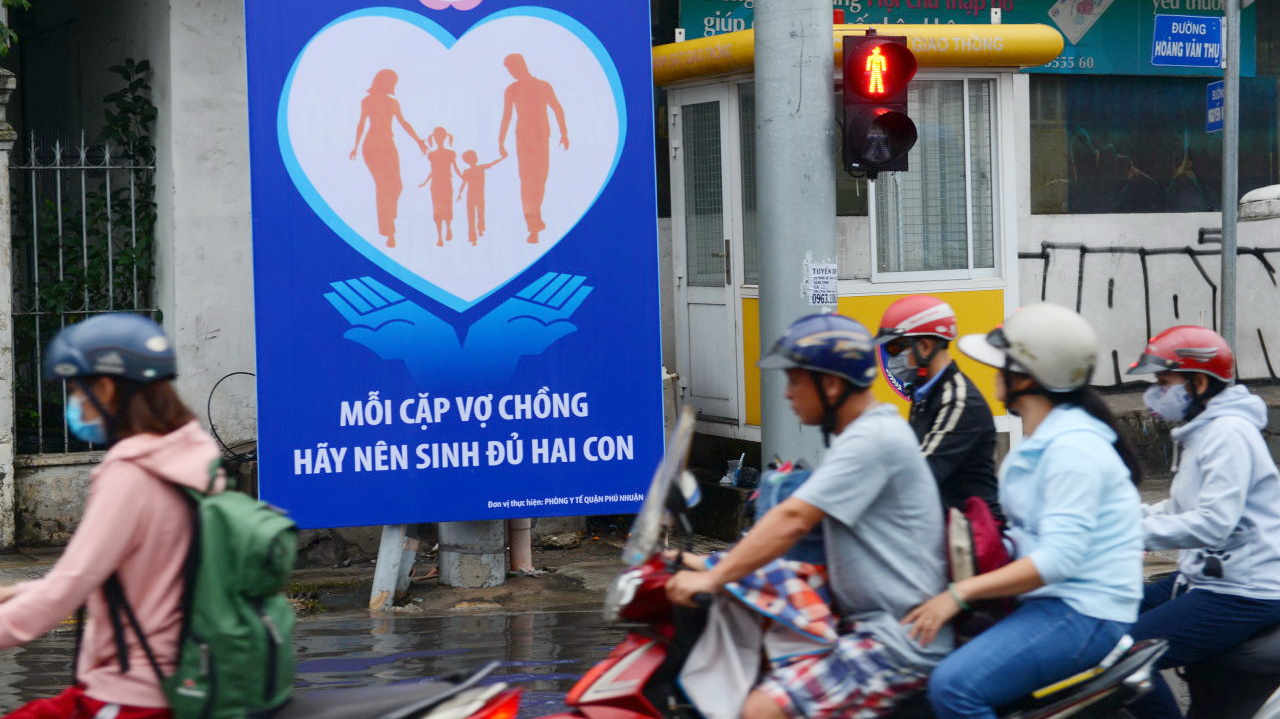As northern Vietnam grapples with high fertility rates, the opposite problem is faced by the country’s southern provinces and cities, where more and more women are reluctant to have children.
Ho Chi Minh City’s total fertility rate (TFR) – the average number of children born per woman – was 1.45 children per woman in 2015, according to Pham Thi My Le, deputy manager of the municipal Population and Family Planning Branch.
That number is remarkably low considering Vietnam’s replacement fertility rate, the TFR needed for a country’s population to exactly replace itself from one generation to the next without migration is 2.10, Le said.
The situation is similar across southern Vietnam, with the TFRs in the Mekong Delta and southeastern regions falling short at 1.9 and 1.8 children per woman, respectively, according to Nguyen Van Tan, deputy director general of the General Office for Population and Family Planning.
Financial pressures
Ho Chi Minh City and the southeastern region – Dong Nai, Binh Duong, Ba Ria-Vung Tau, Binh Phuoc, and Tay Ninh prinvinces – consistently post the lowest fertility rates in the country, despite the fact that these areas are rapidly growing economic hubs where healthcare and social welfare are significantly more accessible than in areas of Vietnam where fertility rates are high, such as the Central Highlands, the Red River Delta, and the northern mountainous region.
The Red River Delta region, for example, has a rising TFR of 2.3 children per woman, according to recent reports.
The high costs associated with rearing children are among the top reasons why women in more developed regions of southern Vietnam say they have chosen to avoid having children.
Parents in these areas are often better educated than their rural counterparts and seem more aware that having too many kids in a family can be a heavy burden.
Women in big Vietnamese cities are also trending toward marrying later in life, a major factor in their decision to have only one child or, in some cases, no children after marriage.
The growing tendency of women opting to stay childless in southern Vietnam has become so worrying that Ho Chi Minh City and others have revised their family planning propaganda from “each family should only have one or two children” to “each married couple should have two children.”
Aging population
As observable in countries where population-control policies were once adopted, it is extremely challenging to bring fertility rates back up after they have plunged too low, regardless of efforts to encourage childbirth.
Population ageing, an increasing median age in the population due to declining fertility rates and rising life expectancy, is forecast to occur at a rapid rate, putting pressure on social welfare and pension programs.
Dropping fertility rates are also responsible for the declination of a country’s population and workforce, especially its young labor.
Despite reporting Vietnam’s lowest fertility rate, Ho Chi Minh City continues to follow decades-old nationwide family planning policies, which state that families should not have more than two children.
Until now, the southern metropolis has not received governmental permission to adopt pronatalist policies.
“[Family planning] policies should be implemented flexibly according to the actual conditions of each region,” said Nguyen Viet Tien, Deputy Minister of Health.
“Each family should have two children to avoid the 4-2-1 inverse pyramid of family structure, in which one child has to care for two parents and all four grandparents for their paternal and maternal sides.”
Like us on Facebook or follow us on Twitter to get the latest news about Vietnam!























































